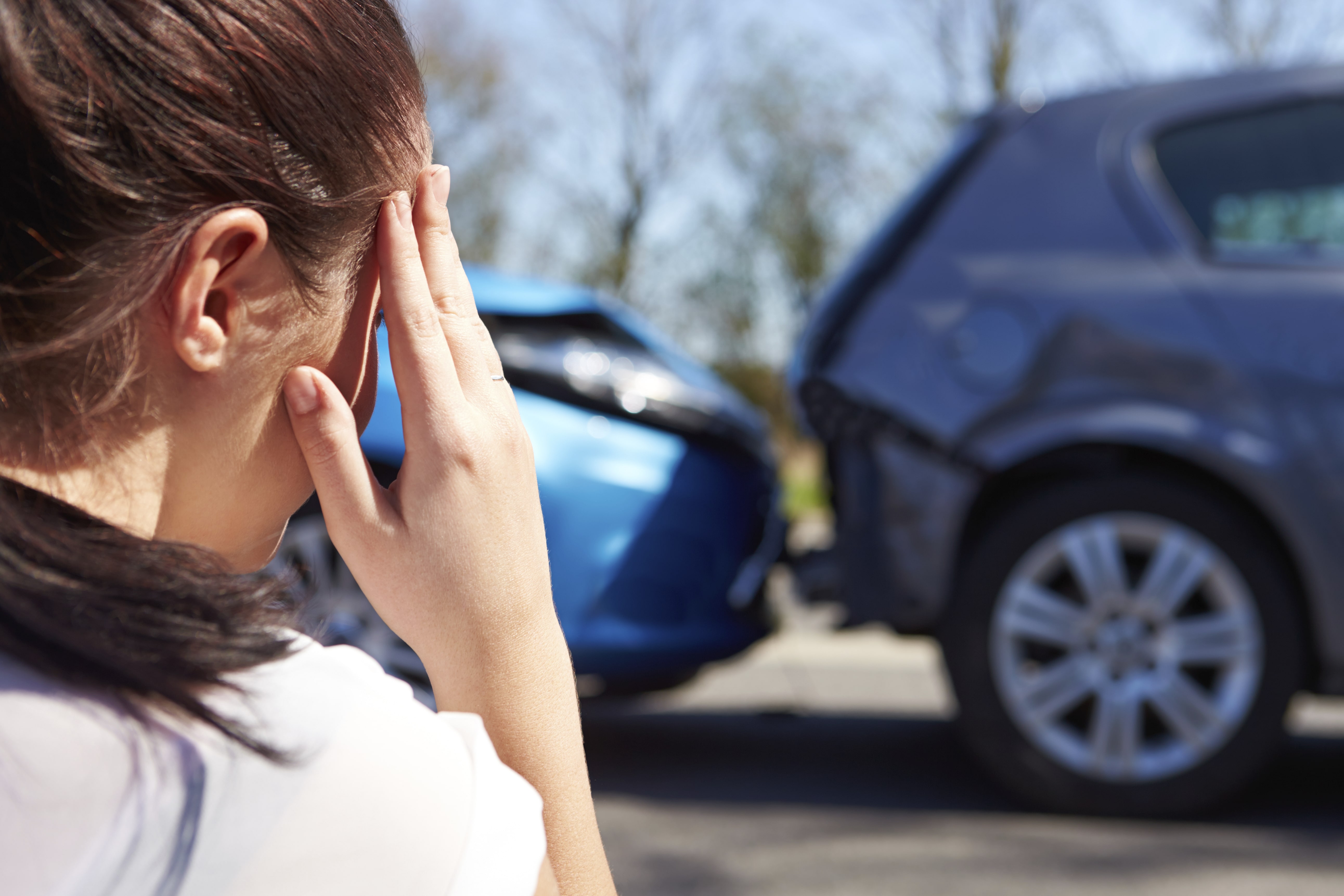 Auto accidents happen every day. Fortunately, most involve low impact and no injuries to the parties involved. Financially responsible people will have insurance to cover their property damage so that they can repair their car and get back on the road. However, if you are injured in a car wreck, remember these five things to help your injury claim following your accident:
Auto accidents happen every day. Fortunately, most involve low impact and no injuries to the parties involved. Financially responsible people will have insurance to cover their property damage so that they can repair their car and get back on the road. However, if you are injured in a car wreck, remember these five things to help your injury claim following your accident:
1. Never Say You’re Sorry
People have a tendency to want to apologize for the fact that they were involved in an accident, even if the accident clearly wasn’t their fault. To get out of your car, go to the other driver, and say, “I’m sorry,” may seem to be a reasonable thing to do, even the polite thing to do, but for persons who later seek compensation for the injuries they sustained in an accident, such politeness can hurt their claim.
Similar to the widely known fact that anything an arrested person says can be used against them in a court of law, statements made by a person who might later become involved in a civil action can also be used against them. If fault for an accident is disputed, a statement by a driver that he or she is sorry about the accident may be considered an admission that they are sorry for causing the accident, even if other facts support a conclusion that the accident was not their fault. You cannot recover compensation for your injuries if you were at fault for causing the accident, and any statements made by you suggesting that your were at fault may prevent you from recovering damages to which you would otherwise be entitled.
Following an accident, limit your communication to the investigating officer, and limit your statements to the facts of the accident, as you understand them, and to requesting medical attention if you need it. If you must speak to the other driver following an accident, it is best to limit your discussion to whether the driver was injured and needs immediate medical assistance.
2. Don’t Say You’re OK if You’re Not OK
Just as people have a tendency to make a polite apology following an accident, they also have a tendency to deny injury even if they are in pain following an accident. Similar to the manner in which an apology can undermine a claim pursued for injuries following an accident, saying you are OK at the scene when you are not can give rise to an argument that you were not really injured in an accident.
Even if you are not in pain following an accident, you may be in shock and simply not feeling the pain you are experiencing, or you may have suffered whiplash and your pain has not yet set in. It is commonly accepted that often whiplash injuries do not become painful until hours or even days after an accident, and the pain that ensues can be both debilitating and long-lasting even the injured party did not experience any pain immediately following the accident.
3. Get Medical Attention As Soon As Possible
If you are in any way shaken up after an accident or are feeling any pain, request medical attention from the investigating officer. Often, an EMT will be called to the scene that will be in a better position to determine whether you have sustained any injuries than you are.
If the EMT feels that a trip to the emergency room is justified, he or she will transport you there for a more thorough examination by a medical professional. Typically, x-rays will be taken to rule out any fractures, and the emergency room physician can give you a prescription if you are in a pain and instructions for follow up with your family physician.
4. Follow Up With Your Family Doctor
In the days following your accident, you may find yourself receiving letters and perhaps even phone calls from chiropractors seeking to assist you with any injuries who have sustained. While chiropractic treatment is often effective for treating whiplash-type injuries, if you feel that you need follow up treatment following your accident, you should make an appointment with your family doctor or other healthcare provider that you see on a regular basis.
Your family doctor has a greater familiarity with your medical history, which is often important in helping you make treatment decisions following an accident. If you are having pain, your family doctor can prescribe medication and can refer you to physical therapy or treatment by a specialist if necessary. When you have a family doctor, starting your follow up treatment with him or her can be more helpful to your claim than if you started treatment with a healthcare provider who contacted you following your accident and with whom you have no previous relationship.
This is not to say that chiropractic care should be avoided. Chiropractic care can be very effective for treating whiplash and is utilized by many people for successful healing from their injuries. If you do not have health insurance or a family doctor, a chiropractor can provide you with the treatment you need at a reasonable cost, and your chiropractor will often defer collection of his or her bill until you have resolved your claim with the insurance company. You should simply avoid chiropractors that solicit you following your accident for your initial follow up treatment if you have other healthcare options available to you.
5. Contact an Injury Attorney As Soon As Possible
You can also expect to be contacted by both your own insurance company and that of the other driver in the days following your accident. While your own insurance company is often required to act in your best interests and can provide assistance in helping you navigate your claim, the interests of the other driver’s insurance company are always adverse to yours, and the other insurance company will seek to both assign fault to you for causing the accident and minimize your injuries and damages in the event that they determine their insured was at fault.
Drivers involved in accidents are strongly encouraged to consult with an injury attorney as soon as possible after an accident, and especially before communicating with the other drivers’ insurance company. Insurance company representatives, who are often polite, professional, and well-trained to get you to settle your claim for as little as possible, may often attempt to create a sense of urgency for you to settle or give up on your claim by giving reasons that you may not fully understand. An experience injury attorney can help you understand the legal issues involved in your case and can communicate with insurance representatives on your behalf to help protect your interests.
It is also important to remember that reputable injury attorneys will never make you pay money up front or any money out of your pocket to represent you following your car accident. Fees charged by injury attorneys, as well as reimbursement for costs, should always be based on a percentage of any recovery obtained on your behalf, with nothing to be paid by you in the event that a recovery is not obtained.
Follow these above steps to help any claim that you may have for injuries following a car wreck. If you have already been in an accident and need legal advice, contact Attorney Group for a free consultation on your legal rights.






